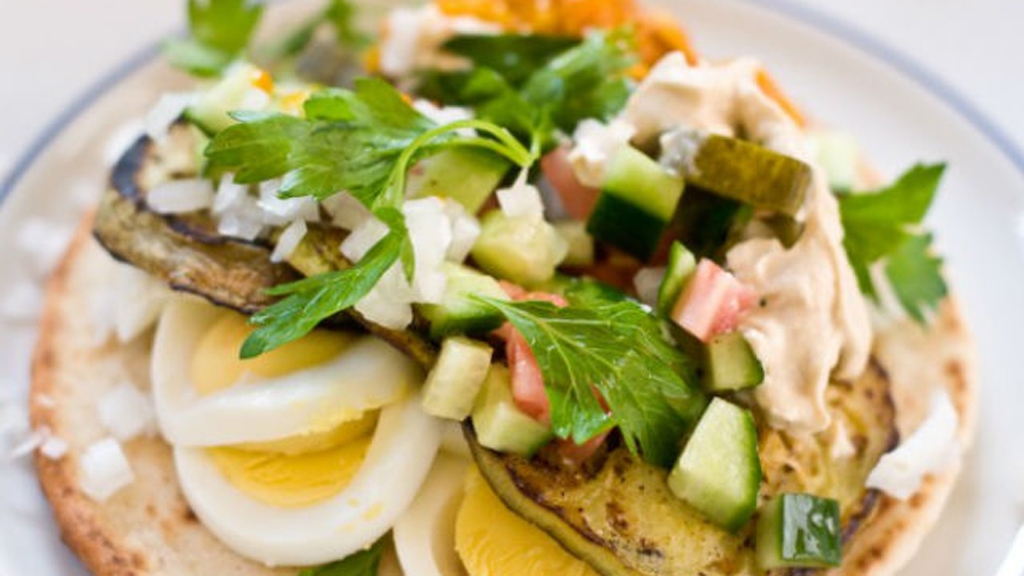For over 1,000 years, Jews have lived in the Middle East, cooking the kind of food that is catching on everywhere today — rice pilafs with fresh herbs and dried fruits, mostly vegetarian dishes accented with nuts and fruits, and slowly simmered soups and stews.
Middle Eastern Jewish cuisine is definitely having a moment, as evidenced by the popular cookbooks Jerusalem by Yotam Ottolenghi and Sami Tamimi which features dozens of Middle Eastern and Jewish-inspired dishes, and Taste of Persia by Naiomi Duguid. Light in meat and full of delicious vegetables, legumes and herbs, this is the kind of food that fits into the lifestyles of many people today.
Iraqi Jewish food, for example, is inspired by the soups, rice, and dumplings (kubbeh) of their Muslim neighbors. The Iraqi Jews apply kosher laws to the cuisine, and swap hot chilis for savory local herbs like za’atar, oregano and thyme.
Persian Jewish food developed in much the same way. It’s distinct from the regional cuisine in that Jewish Persian food favors onions over garlic, and fresh herbs over hot chilis and spice. Fragrant spices like cardamom, cinnamon, coriander, cumin, saffron, sumac and turmeric are all spices that make this cuisine so delicious.
The Nosher celebrates the traditions and recipes that have brought Jews together for centuries. Donate today to keep The Nosher's stories and recipes accessible to all.
For more information on the history and characteristics of Middle Eastern Jewish cuisine read this article.
You can learn how to cook this cuisine with the recipes below:
Arab Style Tortellini (Shishbarak)
Falafel
Fassoulyeh b’Chuderah
Bamia (Okra) with Tomatoes
Sumac Chicken and Rice
Mujaderra: Lentil and Rice Pilaf
Kufteh Berenji
Kibbeh Nabilseeyah
Koofteh (Persian Meatballs)
Masgouf: Iraqi Fish
Sabich (pictured above)
Baklava with Honey and Cardamom
Cardamom Coffee Semi Freddo
Basbousa Cake with Halvah Cream and Semolina Crumble



